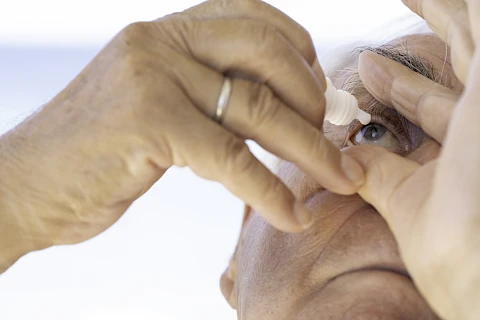
Dry eye syndrome is a common condition that causes discomfort and affects many seniors. If you or a loved one are experiencing symptoms like itching, burning, and redness in the eyes, it's essential to address these issues. Left untreated, dry eye can impact everyday activities and overall well-being.
Understanding Dry Eye Syndrome
Dry eye syndrome occurs when the eyes cannot produce enough tears or when the tears evaporate too quickly. Common symptoms include persistent itching, a burning sensation, and redness. Some people may also experience blurred vision and sensitivity to light.
Seniors are at a higher risk of developing dry eye syndrome. Aging naturally reduces tear production, and conditions like arthritis or diabetes can worsen symptoms. Certain medications, such as antihistamines and blood pressure drugs, can also contribute to dry eyes.
Living with dry eyes can make daily activities uncomfortable. Reading, watching TV, or even enjoying a walk can become challenging. It's vital to understand these impacts to take effective steps toward relief.
Managing Dry Eye Syndrome
There are several strategies seniors and their caregivers can use to reduce symptoms of dry eye syndrome.
Using Artificial Tears
Artificial tears are a simple yet effective way to manage dry eye symptoms. Various types are available—some are thicker and provide longer-lasting relief, while others are lighter and feel more natural.
Start with one or two drops in each eye, as needed. Be consistent and use them several times a day. Try non-preservative options if you have sensitive eyes or need to use drops frequently.
Maintaining a Humidified Environment
Dry air can worsen eye irritation. Keeping your living space humidified can offer significant relief. A humidified environment adds moisture to the air, which helps keep your eyes hydrated. Use a humidifier in your bedroom or living room. Place bowls of water near heat sources. Consider adding indoor plants, which release moisture.
Lifestyle Changes
Minor lifestyle adjustments can also help manage dry eye syndrome. Drink plenty of water to stay hydrated. Include omega-3 fatty acids in your diet by eating fish or taking supplements. In addition, think about strategies for reducing screen time and its impact. Take frequent breaks during prolonged screen use. Follow the 20-20-20 rule: look at something 20 feet away for 20 seconds every 20 minutes.
Wearing Protective Eyewear
Wear sunglasses to shield your eyes from wind and sun, and consider wraparound glasses to protect your eyes from environmental irritants.
Seeking Professional Help
Sometimes, over-the-counter solutions aren't enough. If dry eye symptoms persist, it's crucial to consult an eye specialist. A professional can offer treatments tailored to your needs, including prescription eye drops, punctual plugs to block tear drainage, or special contact lenses designed for dry eyes.
Support at Home for Seniors
Dry eye syndrome can be challenging but manageable with the right approach. Use artificial tears, humidify your environment, and make a few lifestyle changes to alleviate symptoms. If problems continue, don't hesitate to seek professional help.
If you or a loved one in Knoxville, Maryville, Clinton, or Loudon need more assistance at home, Senior Helpers Greater Knoxville can provide the support and resources you need. Contact us today to learn more.